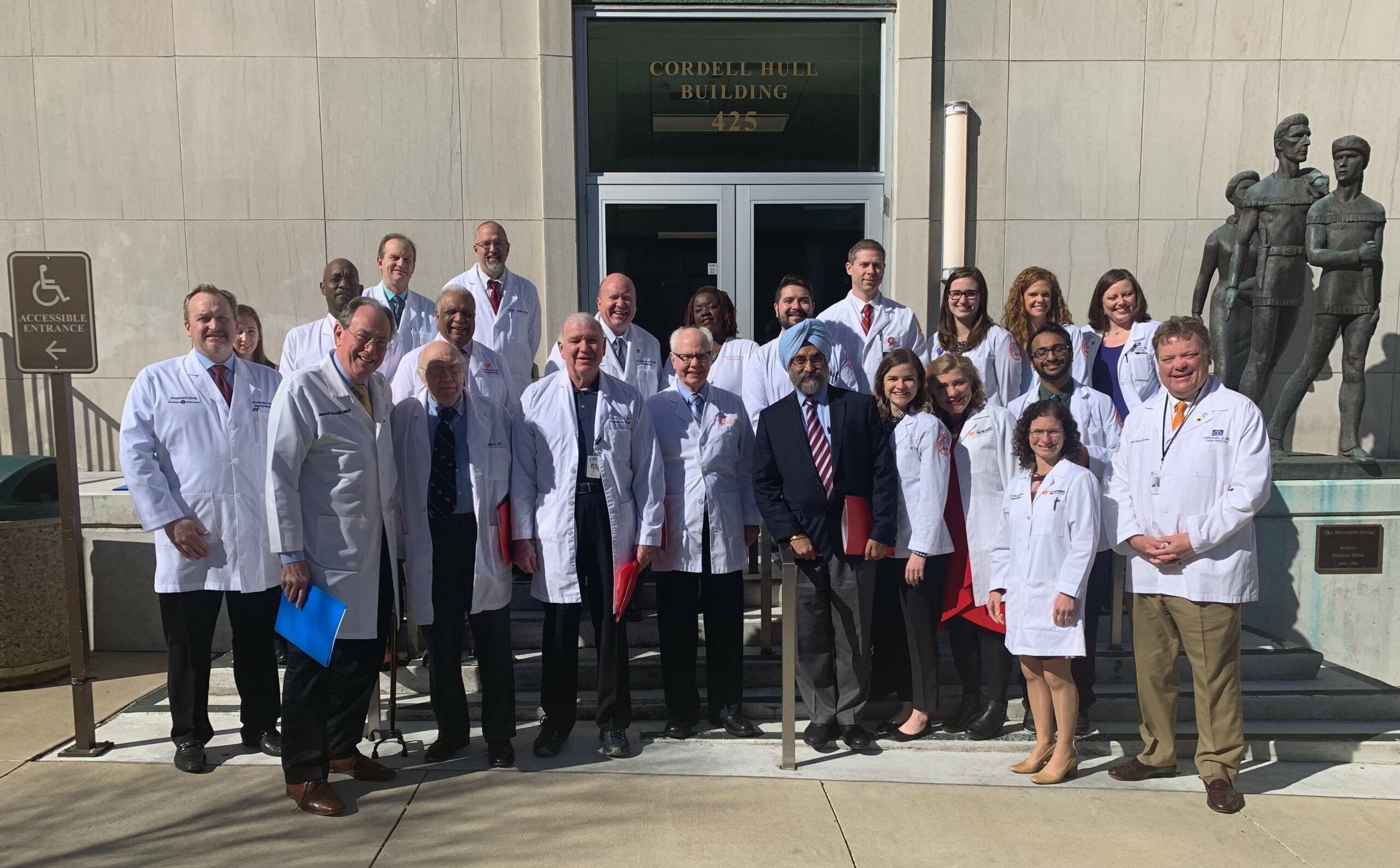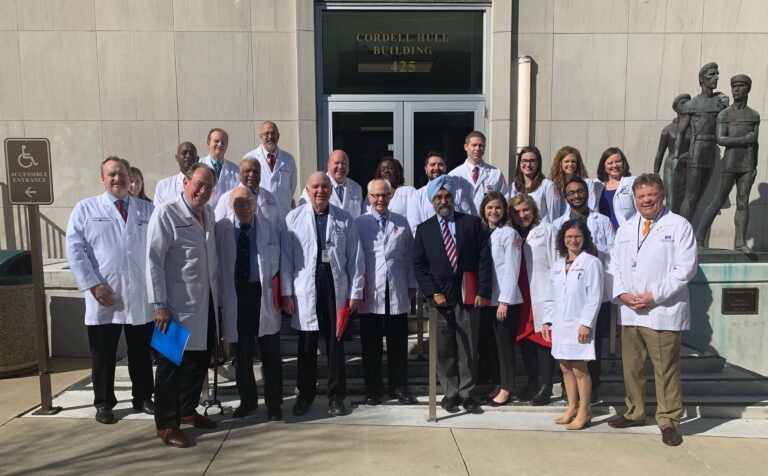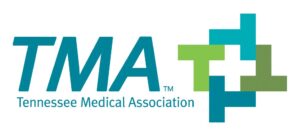
The Tennessee Medical Association has released a summary of its most recent government affairs efforts following adjournment of the 2019 legislative session on Thursday, May 2. TMA staff, with the help of Memphis Medical Society Legislative Committee, Board of Directors and staff, reviewed all 1,549 bills filed in the session, tracked more than 340 related to healthcare, amended 32, defeated 11 and passed six.
From Memphis, members influenced the process by attending this year’s Day on the Hill (over 40 MMS members attended) and conducting a series of 1-on-1 and group meetings locally with our legislators. This year’s efforts were highlighted by our Meet the Candidates sessions on June 21 and June 28 at the MMS office, along with our annual Legislative Reception on November 12th. Want to get involved in our Legislative Committee? Email our CEO, Clint Cummins, at ccummins@mdmemphis.org and we will get you added.
The first session of the 111th General Assembly brought more than 30 new legislators and was the start of a new gubernatorial administration. TMA entered the transitional year with an intentionally limited focus on opioids, graduate medical education funding and scope of practice, but engaged, as usual, on every healthcare issue affecting doctors and patients.
- OPIOIDS – TMA’s top legislative priority in 2019 was working with the General Assembly to amend Gov. Bill Haslam’s TN Together laws passed in 2018. New amendments address specific issues raised by doctors and patients, and ensure that the laws do not unreasonably obstruct patients from accessing legitimate, effective pain management. TMA developed a number of proprietary resources to educate doctors when the laws first took effect in 2018 and promptly updated them to reflect the 2019 changes. TMA members can access the materials at tnmed.org/opioids.
- SCOPE OF PRACTICE – TMA helped defeat a version of a bill that would have given physician assistants a new license to practice in Tennessee without physician supervision or collaboration. TMA also helped defeat a measure that would have given PAs and nurse practitioners the ability to prescribe buprenorphine. There were no bills related to nurse independent practice thanks to a moratorium TMA negotiated with the Tennessee Nurses Association. The moratorium expired after the session. TMA continues advocating for physician-led, team-based healthcare delivery as the best way to ensure patient safety and quality of care. Memphis Medical Society members met with Rep. Kevin Vaughan, the chair of the Facilities, Licensure, & Regulations Subcommittee and member of the Health Committee. We will continue to participate in dialogue on this issue.
- GME – Governor Bill Lee announced in his State of the State address in March that he would propose more than $8 million in additional funding for graduate medical education in Tennessee. TMA, after years of lobbying for increased funding for residency training slots, worked with the new administration and General Assembly to advocate for the additional monies in the state budget. The legislature approved $8.7 million that will allow Tennessee to train and keep more doctors instead of exporting them to other states, and improve healthcare access in underserved areas. Memphis Medical Society Student Section leadership, including Jennings Dooley and Matt Scott, led a group of students from across the state to raise greater awareness to this important issue. Stay tuned for more as we tell the story of how this funding came to be and how it stemmed from grassroots action from Memphis Medical Society members.
- BALANCE BILLING – While no related bills gained traction in the 2019 session, TMA continued to work toward a reasonable solution to “surprise medical bills” that shares the burden between all parties—providers, payers and hospitals—and frees patients from unexpected charges for out-out-network treatment. TMA continues to educate lawmakers on health plans’ narrow networks as the root cause of balance billing and advocate for physicians’ rights to be compensated fairly for the services they provide.
- TELEMEDICINE – TMA supported a bill to ensure telehealth services would be reimbursed at the same rates as in-office visits. The bill did not pass in 2019, but it helped advance the conversation about appropriate rules and reimbursement for telehealth services. TMA will continue advocating for laws, rules and regulations that support telehealth as part of a coordinated, integrated healthcare delivery network, especially in rural, underserved areas of the state.
- PARITY FOR MEDICATION-ASSISTED TREATMENT – TMA worked with the General Assembly to pass a resolution encouraging health insurance companies to include Medication-Assisted Treatment in patients’ health plans and reimburse specialists who provide MAT services at rates comparable to other treatments. Using medications in combination with counseling and behavioral therapies is a necessary strategy in the ongoing fight against Tennessee’s opioid abuse epidemic.
- PROFESSIONAL PRIVILEGE TAX – Prior to adjourning, the legislature abruptly exempted several professions from paying the state’s professional privilege tax. Doctors are still required to pay the annual tax, along with lawyers, lobbyists and stock brokers. TMA has advocated for reduction or removal of the professional privilege tax for years and expects it to be a top legislative priority in 2020 as it continues working with lawmakers on possible solutions.
What’s next? Memphis Medical Society will participate in TMA Legislative Committee meetings over the summer, host its own Legislative Committee meeting and begin raising additional funds for MEMPAC, the Society’s Political Action Committee (PAC). As always, we will host our annual Legislative Reception once again. More to come!
Don’t forget TMA is a nonprofit advocacy organization representing more than 9,500 physician members. The association advocates for public policies, rules and regulations that promote healthcare safety and quality for all Tennesseans and improve the non-clinical aspects of practicing medicine. Earlier this year TMA was ranked in an independent survey as the most influential and trusted advocacy organization in the state, not just in healthcare but across all industries.







